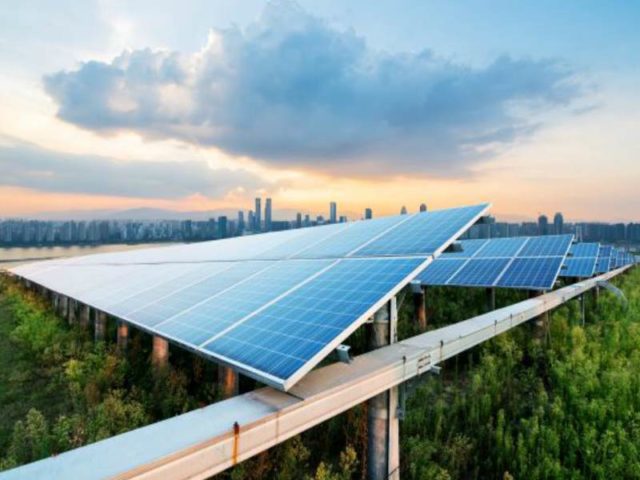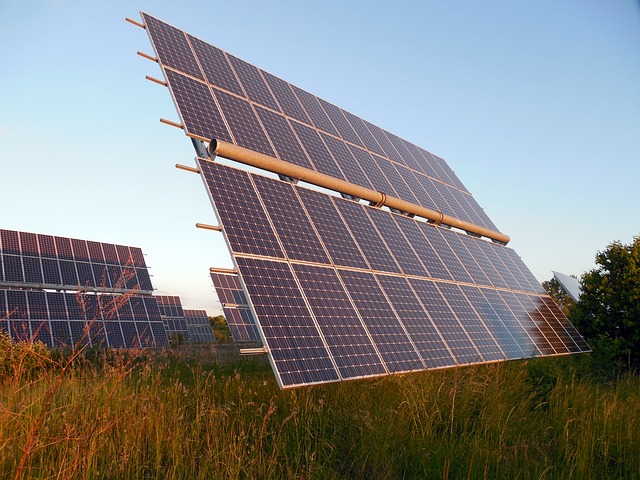
In an era marked by increasing concerns about climate change and the depletion of fossil fuels, the spotlight has turned towards renewable sources of energy. Among these, solar energy stands out as one of the most abundant and promising options. Harnessing the power of the sun isn’t just a futuristic dream anymore – it’s a practical and sustainable solution that’s accessible to individuals, communities, and industries alike. In this comprehensive guide, we’ll delve into the world of solar energy systems, exploring how they work, their benefits, and how you can incorporate them into your life.
Understanding Solar Energy
At the heart of solar energy systems are photovoltaic (PV) cells, which are responsible for converting sunlight directly into electricity. These cells are typically made from semiconductors, such as silicon, that absorb photons from sunlight. When photons interact with the semiconductor material, they generate an electric current – the fundamental principle behind the generation of solar power.
Types of Solar Energy Systems
1. Grid-Tied Solar Systems:
Grid-tied systems are the most common type of solar installation for residential and commercial use. These systems are connected to the local utility grid, allowing excess electricity generated by your solar panels to be fed back into the grid. This often results in net metering, where you receive credits for the surplus energy you contribute.
2. Off-Grid Solar Systems:
Off-grid systems are independent of the utility grid. They incorporate battery storage to store excess energy generated during sunny periods, which can then be used during nighttime or cloudy days. Off-grid systems are popular in remote areas where connecting to the grid is impractical.
3. Hybrid Solar Systems:
Hybrid systems combine the features of both grid-tied and off-grid systems. They’re connected to the grid but also include battery storage for backup power. These systems offer the advantage of utilizing stored energy during power outages and peak electricity demand periods.
Benefits of Solar Energy Systems
The adoption of solar energy systems brings forth a multitude of benefits, both for individuals and the planet.
1. Renewable and Sustainable:
Solar energy is an infinite resource. As long as the sun continues to shine, we can harness its energy. Unlike fossil fuels, solar power generation doesn’t deplete natural resources or produce harmful emissions.
2. Reduced Electricity Bills:
By generating your own electricity, you can significantly reduce your monthly electricity bills. Excess energy can even earn you credits or payments if your system is connected to the grid.
3. Low Maintenance:
Solar panels require minimal maintenance. Regular cleaning to remove dust and debris and occasional inspections to ensure proper functioning are usually sufficient.
4. Positive Environmental Impact:
Solar energy systems contribute to reducing greenhouse gas emissions, air pollution, and water usage associated with traditional energy sources. By adopting solar power, you’re directly contributing to a cleaner environment.
5. Energy Independence:
Solar panels provide individuals and communities with a degree of energy independence. This is particularly valuable in areas with unreliable grid infrastructure or high energy costs.

Considerations Before Going Solar
While the benefits are compelling, there are some key considerations to keep in mind before installing a solar energy system.
1. Initial Investment:
The upfront cost of purchasing and installing solar panels can be significant. However, numerous government incentives, tax credits, and financing options are available to help offset this cost.
2. Location and Sunlight:
The effectiveness of solar panels depends on the amount of sunlight your location receives. Areas with ample sunlight are ideal for maximum energy generation.
3. Roof Suitability:
Assessing your roof’s orientation and condition is crucial. Ideally, your roof should have sufficient space, minimal shading, and the right angle to maximize sunlight exposure.
4. Maintenance and Repairs:
Though solar panels have low maintenance requirements, they can still degrade over time. Understanding warranty terms and maintenance needs is essential.
5. Regulations and Permits:
Solar installations may be subject to local regulations and permits. Familiarize yourself with these requirements before proceeding.
Steps to Going Solar
- Energy Audit: Begin by assessing your energy needs and usage. This will help you determine the size of the solar system you require.
- Financial Analysis: Evaluate the costs and potential savings associated with going solar. Consider available incentives and financing options.
- Choose a Solar Provider: Research reputable solar providers in your area. Request quotes, compare offerings, and read customer reviews.
- Site Assessment: A solar provider will assess your location to determine its suitability for solar panel installation. Factors like shading and roof condition will be considered.
- Design and Proposal: The provider will create a system design and propose an installation plan. Review the design and ensure it meets your needs.
- Permits and Paperwork: Your solar provider will handle the necessary permits and paperwork required for the installation.
- Installation: Once permits are secured, the solar panels and associated equipment will be installed on your property.
- Inspection and Interconnection: After installation, a building inspector will assess the system’s compliance with codes and regulations. Once approved, the system will be connected to the grid.
- System Activation: With the necessary approvals, your solar energy system can now be activated, and you can start generating your own clean energy.
- Monitor and Maintain: Regularly monitor your system’s performance and keep it clean. Address any maintenance or repair needs promptly.
The Future Shines Bright
As technology advances and the world continues to prioritize sustainability, the future of solar energy looks promising. Innovations in solar panel efficiency, energy storage, and integration with smart technologies are making solar power even more accessible and convenient. By harnessing the power of the sun, we’re not only reducing our carbon footprint but also paving the way for a brighter and cleaner energy future. Whether you’re considering solar panels for your home or exploring large-scale solar farms, understanding the ins and outs of solar energy systems will empower you to make informed and impactful decisions. For additional tips and information about solar energy use, be sure to visit FreshersWeb to learn more.

